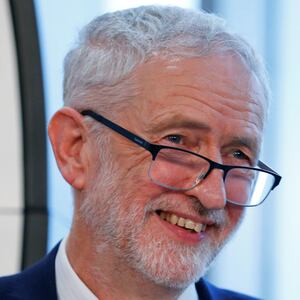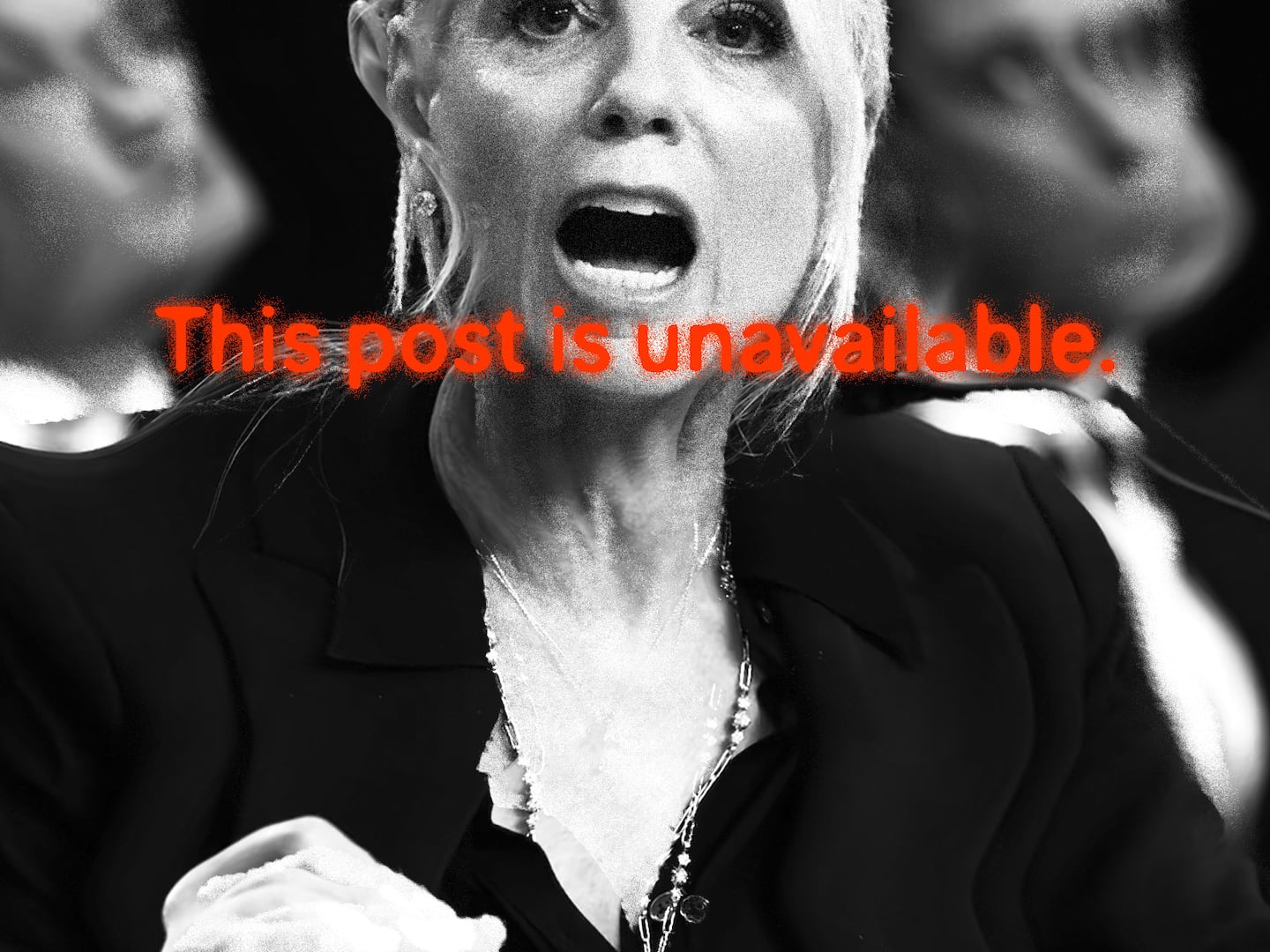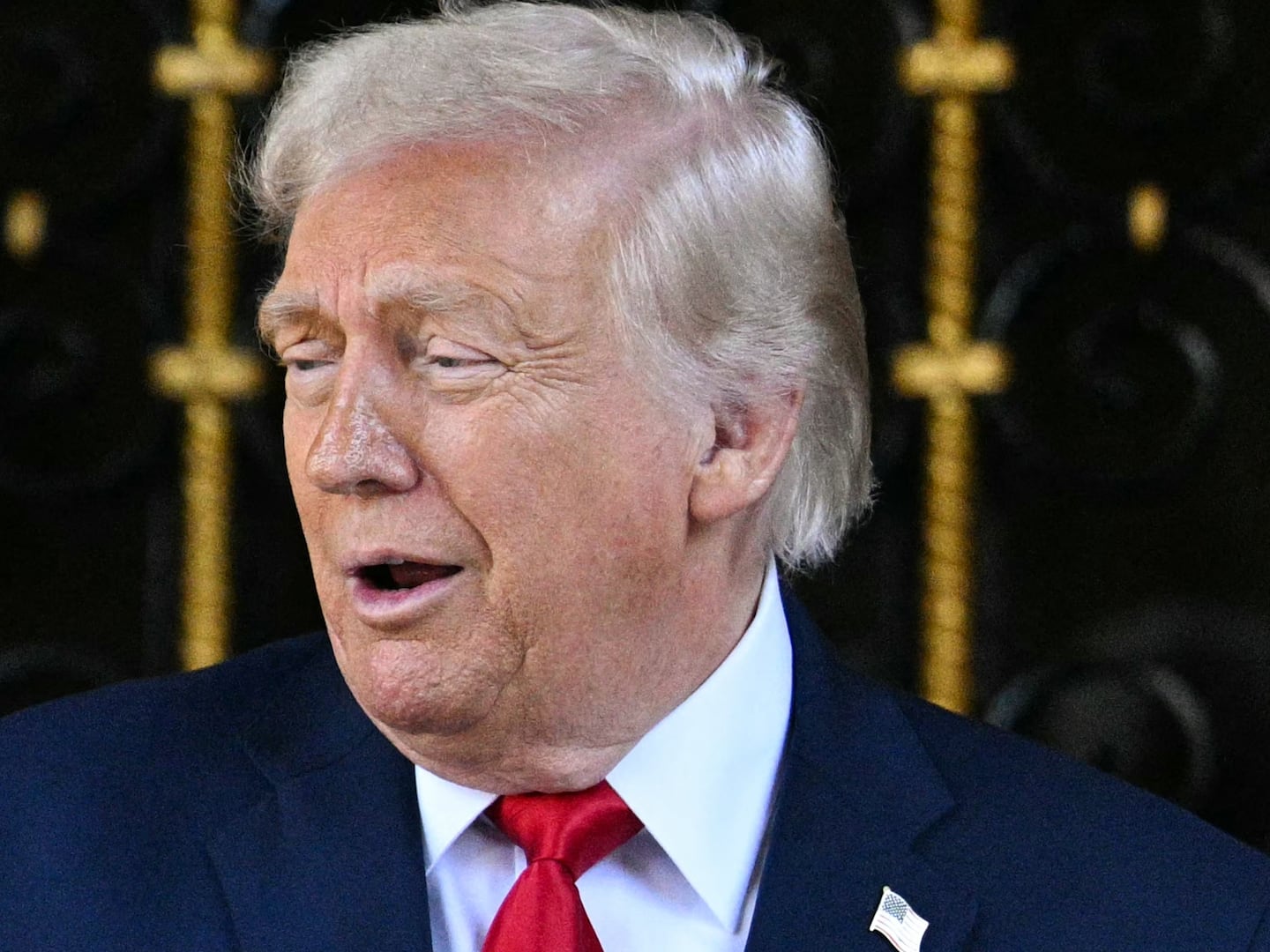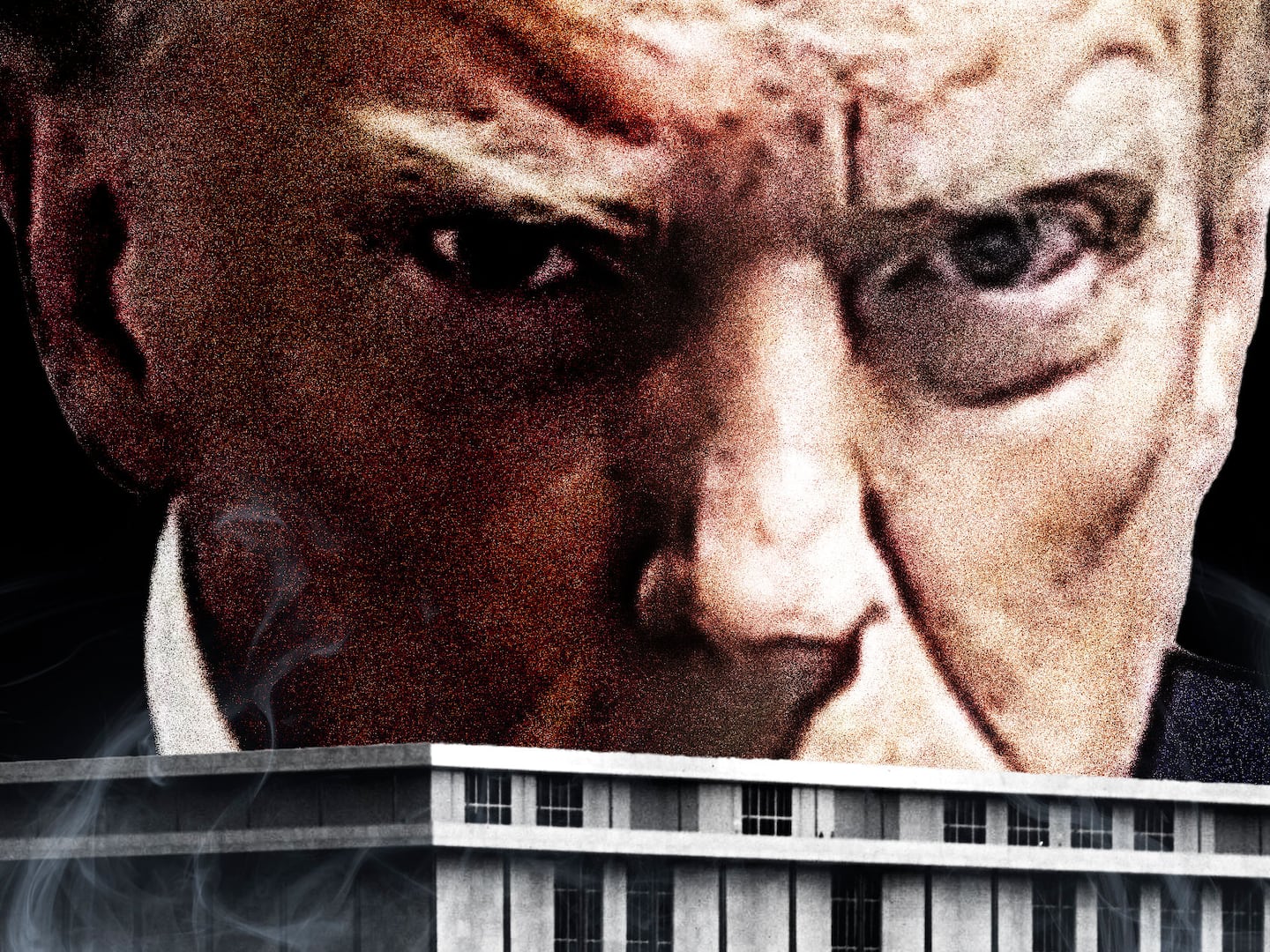LONDON—Almost a century of rebellion against British rule in Ireland—including long periods of violent insurrection—failed to reunify the island under a single flag. But historians may look back on the 2016 Brexit referendum as the moment that ambition finally moved to within reach.
The collapse of functioning politics in Westminster—where one of the world’s most stable democracies has proved utterly unable to cope with the fallout from Brexit—has inspired Irish nationalists to believe they can seize on renewed border disputes to secure a referendum on the reunification of Ireland. A senior Irish nationalist told The Daily Beast: “It’s all being driven by Brexit.”
Nationalists are also seizing on the Brexit mess in Scotland, where the push for a second independence referendum has been revitalized by London’s determination to pull out of the European Union against the wishes of the Scots, who voted 62 percent to 38 percent to remain. One lawmaker from the pro-independence Scottish National Party said: “With a campaign focused on Europe, independence will go over the line.”
The question of what to do about the border between Northern Ireland, part of the United Kingdom, and the rest of Ireland has come to dominate two years of Brexit negotiations. Under the 1998 Good Friday Agreement, which brought peace to the island and an end to the Troubles, the border was thrown open and goods and people were allowed to flow freely between two nations that were both inside the EU’s single market and customs union. Brexit means the Northern Irish border, which was once dotted with military checkpoints and thousands of troops, will become the U.K.’s only land border with the European Union.
“Any attempt to try and reinstall walls and borders on the island of Ireland will be catastrophic.” Michelle O’Neill, deputy leader of the Irish nationalist party Sinn Féin, told The Daily Beast.
The increased tensions come as U.K. police probe claims from a group calling itself the IRA that it was responsible for posting four incendiary devices to addresses in Britain this month. The group, sometimes known as the “new IRA,” is made up of dissidents who didn’t accept the 1998 peace agreement.
Irish fears that an era of stability is coming to an end—and Scottish fury with London’s mishandling of a Brexit they never even wanted in the first place—have sprung from a referendum campaign that promised to “take back control,” to make the U.K. great again. Instead, a nation that has been humbled by botched negotiations and global mockery could end up losing almost 40 percent of its territory.
Both sides of the 2014 Scottish independence referendum promised it would be a “once in a generation” vote, but independence campaigners now argue that the United Kingdom that Scots voted to stay in five years ago no longer exists. The leader of Scotland’s devolved parliament, Nicola Sturgeon, has used Brexit to demonstrate that the voices of broadly pro-Remain and pro-immigration Scots can be drowned out by the much larger English population which has made its thoughts on the matter very clear over the past few years. Sturgeon has promised to reveal her plans for a new independence vote in the “next few days.”
“The promises of 2014 were to guarantee our place in the European Union, that was clearly a lie, and we were told we should stay in the U.K. to lead it, that is a lie, too,” SNP MP Angus MacNeil told The Daily Beast. “We now find ourselves being taken out of the EU against our will. Brexit is making the case [for independence], not just in the incompetence of the U.K. but in the competence of Ireland, which has demonstrated that being an independent nation in a club of nations is far better than being a region of a United Kingdom that doesn’t respect you.”
The Irish government has been a powerful player in Brussels, and Irish nationalists in Northern Ireland want to quit the U.K. and reunify the island of Ireland. The campaign for a united Ireland is being led by Sinn Féin, a party that operates on both sides of the Irish border and is represented in Brussels by four members of the European Parliament—three from the Republic and one from Northern Ireland. A party insider boasted to The Daily Beast that they had been stunned by their ability to combat the British government’s position from the heart of Europe. “We didn’t expect to have such a strong hand,” he said.
The links between Sinn Féin and the IRA have always been contested, but the Irish government has described Sinn Féin’s longtime leadership team of Gerry Adams and Martin McGuinness as being former members of the IRA Army Council, and the British government described the two organizations as being “inextricably linked.” Adams always denied the widely held belief that he was a senior figure in the IRA, although McGuinness was more open about his past as a former terrorist commander.
Since McGuinness’ death in 2017 and the retirement of Adams the following year, Sinn Féin has projected a very different image, but the drive toward a united Ireland has continued apace under the leadership of Mary Lou McDonald and Michelle O’Neill.
O’Neill told The Daily Beast that Brexit had been a transformational event for Irish nationalism. “This is the biggest period of change since the Good Friday Agreement,” she said. “Brexit has just turned everything on its head.”
Speaking in London, where she held meetings with Prime Minister Theresa May and Labour leader Jeremy Corbyn, O’Neill said Brexit was a Conservative Party project that had been approved of in England. “The Irish people did not consent,” she said. “We’re being dragged out of Europe against our wishes.”
In the 2016 referendum, the vote in Northern Ireland was split 55.8 percent to 44.2 percent in favor of remaining in Europe.
O’Neill said she confronted May over her “duplicity” for trying to rip up the agreed Irish backstop in the Withdrawal Agreement when it turned out the prime minister could not get her own party to support it. “She was aghast that I even would say that, but that's exactly how people feel because that's the reality,” O’Neill said.
Despite May’s difficulty in securing support in Westminster for her negotiated exit from the EU, she has continued to hew to the position set out by the Brexit wing of her own party. In the hunt for vital votes, she has chased the ever-diminishing prize of increased support from the hard Brexiteers rather than seeking a broader consensus and winning support from moderate Labour MPs seeking compromise.
Michelle Gildernew, one of Sinn Féin’s seven abstentionist MPs who refuse to take their seats in the British parliament, said a no-deal Brexit threatened to inflict huge damage on Ireland.
“In the mouth of the biggest crisis to happen in Britain, Theresa May is still more concerned about the unity of the Conservative Party than the unity of the U.K.,” she told The Daily Beast. “We’re intent not to be collateral damage.”
While Sinn Féin have chosen not to use their potential votes in Westminster for long-held political reasons, they have been focused on maximizing their influence in Dublin and Europe. In Brussels, they have produced miniature copies of the Good Friday Agreement that they have been distributing to MEPs while explaining what they see as the risks of Brexit. “The Europeans care more about the peace process than in this country,” said O’Neill.
Sinn Féin is a member of the European United Left-Nordic Green Left parliamentary grouping in Brussels, which has one of six seats on the Brexit steering group. “[Our representative] has more or less come to us for their direction so we have been able to shape a lot. The language on the special status, the backstop has more or less come in from us,” a party official said.
The Irish nationalists stopped short of placing their own MEP on the Brexit steering group, but a Sinn Féin party member was chosen as the staffer to work for the group’s Brexit representative. A Brussels official told The Daily Beast: “It’s widely agreed that Sinn Féin have been the driving force in the European Parliament.”
The strict terms on the Irish backstop—an issue that was first pushed by Sinn Féin, which began to draw up studies into the compatibility of the Good Friday Agreement and EU treaties—have proved anathema to the hard Brexiteers. Disagreement on the Irish border could yet cost Britain and the EU a deal. Sinn Féin believe that would be a “catastrophe,” but it could also offer a renewed opportunity to secure a united Ireland at the ballot box.
Under the Good Friday Agreement, a referendum should be held if a majority would likely vote for reunification. That is not yet the case but recent polls do show movement on the issue, with 86 percent in the Republic of Ireland saying they would prefer a united Ireland to a hard border and 62 percent of people in Northern Ireland saying they thought Brexit made unification more likely.
A no-deal Brexit, which May is struggling to avoid, is likely to have much more impact than an orderly, negotiated withdrawal.
“We believe, if there is a crash out, the British government needs to move immediately to put the question to the people; we would much prefer that we had time to have a proper debate, an inclusive debate. But the reality is that Brexit has fundamentally changed everything. Clearly it has to happen immediately,” O’Neill said.
In Scotland, many pro-independence campaigners saw the Brexit vote in June 2016 as the golden opportunity to win over voters whom they failed to convince in 2014. A poll carried out in the days following the shock Brexit result saw support for independence shoot up to its highest ever level of 60 percent. Support has since slipped back down to around the levels it was in 2014, with a slim majority for staying in the U.K., but the pro-independence Scottish government has been working behind the scenes in Edinburgh, London, and Brussels to ensure it’s in a position to seize on the coming storm when Britain does leave the EU.
Their renewed argument is a straightforward one: Scotland made clear it wants to stay in the EU; its voice has been completely ignored during the Brexit process; and the British government has shown itself to have been wholly and utterly incompetent.
“There are a big chunk of people in Scotland who voted ‘No’ last time who did so not because they were hostile to independence, but because they weren’t persuaded of the need for change,” said SNP MEP Alyn Smith, who effectively serves as the party’s go-between from Edinburgh to the center of European politics in Brussels.
“They didn’t get our argument that Westminster isn’t representative of Scotland’s interests, that we would be after a process a member of the EU. They didn’t see the need for change economically. The uncertainty of independence didn’t stack up against the familiarity of the U.K.. But all three of those strands of sentiment have now been knocked for six.”
But, as with everything to do with Brexit, it’s not straightforward and every time one problem seems solved it throws up a dozen more.
Firstly, Scotland’s only border is with England and—if one were to be in the EU and the other not—it would throw up issues that the SNP openly admits it doesn’t yet know how to solve and would give voters severe doubts about whether it was worth the upheaval. Secondly, Scotland can’t just hold a referendum when it wants. In 2014, David Cameron granted permission for Scotland to hold one in a gamble that paid off for the prime minister and emboldened him into believing another victory in the European referendum was inevitable.
“For me, the politics have never been better, but the logistics have never been more complicated,” said Smyth. “Our independence proposition in 2014 was predicated in the same way as the Good Friday Agreement—that both bits of the border, north and south, would remain in the EU, the single market, and the customs union. So much of the nuts and bolts of the customs stuff just didn’t arise back then. But the logistics of the independence question has now altered and we need to have an answer to how the border is going to work. At the moment there isn’t an answer because the U.K. government doesn’t have an answer.”
As for gaining May’s permission to hold one—if she remains prime minister in the coming months, which is far from certain—it’s not clear she would ever be open to it. Shortly after the EU referendum, when Sturgeon said that she thought another Scottish referendum was highly likely, she was rebuffed by May, who coined a catchphrase for whenever she was asked about it: “Now is not the time.”
She’s given no indication that her position has moved since then.
One SNP source suggested that the party, which is the third biggest in the British parliament with 35 lawmakers, could back her deal if it comes to a vote this week in return for a promise to grant permission for an independence referendum. However, others think they could hold an advisory referendum without May’s permission to show the strength of pro-independence feeling, or effectively make the next U.K. general election into an independence referendum with manifesto promises.
“Now is never the time for the imperialist mind-set,” said MacNeil. “Now was not the time for American independence, now was not the time for Irish independence, now was not the time for Indian independence, now is not the time for Scotland. We have to be bolder.… Very often nations don’t get given their independence, they take their independence.”
As for when that vote would take place, an announcement is believed to be coming very soon but there are still a few pieces that have to fall into place. “There’s hard politics that say we need to let the Tories own Brexit, we need to try and fix Brexit, and then we need to see where that falls and then we have other options,” said Smith. If the U.K.’s Brexit path is finally mapped out in the coming weeks, the Scottish and Irish nationalists will be poised and ready to throw Westminster into chaos once again.








